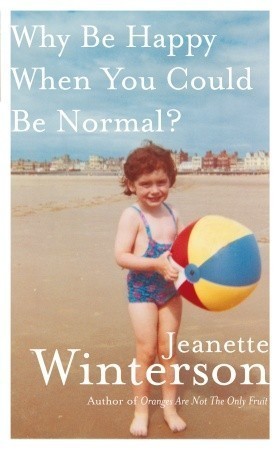What do you think?
Rate this book


In 1985 Jeanette Winterson's first novel, Oranges Are Not the Only Fruit, was published. It was Jeanette's version of the story of a terraced house in Accrington, an adopted child, and the thwarted giantess Mrs Winterson. It was a cover story, a painful past written over and repainted. It was a story of survival.
This book is that story's silent twin. It is full of hurt and humour and a fierce love of life. It is about the pursuit of happiness, about lessons in love, the search for a mother and a journey into madness and out again. It is generous, honest and true.
242 pages, Kindle Edition
First published October 25, 2011
’I believe in fiction and the power of stories because that way we speak in tongues. We are not silenced. All of us, when in deep trauma, find we hesitate, we stammer; there are long pauses in our speech. The thing is stuck. We get our language back through the language of others. We can turn to the poem. We can open the book. Somebody has been there for us and deep-dived the words.’
’Later, when I was successful, but accused of arrogance, I wanted to drag every journalist who misunderstood to this place, and make them see that for a woman, a working-class woman, to want to be a writer, to want to be a good writer, and to believe that you are good enough, that was not arrogance; that was politics.’
'Creative work bridges time because the energy of art is not time-bound. If it were we should have no interest in the art of the past, except as history or documentary. But our interest in art is our interest in ourselves both now and always. Here and forever. There is a sense of the human spirit always existing. This makes our own death bearable. Life + art is a boisterous communion/communication with the dead. It is a boxing match with time.’



